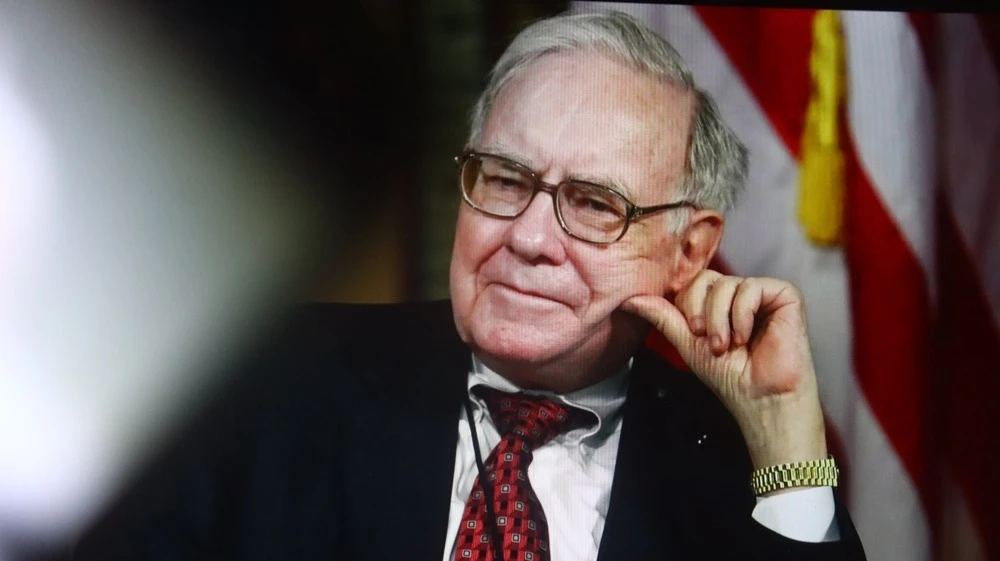UBS has lowered its target on Berkshire shares. "Is the Buffett Prize coming to naught?
Since Warren Buffett named a date for Berkshire to step down as head of Berkshire, its shares have fallen 8% in price

Analyst UBS, one of the few "bulls" on Wall Street regarding Warren Buffett's Berkshire Hathaway shares, worsened the company's target price and earnings forecast. Nevertheless, the bank has not abandoned its advice to buy Berkshire securities and calls them an attractive asset amid uncertainty.
Details
UBS analyst Brian Meredith reduced his target on Berkshire Hathaway's Class B shares from $606 to $591, maintaining a Buy recommendation on them (Buy rating), wrote Barron's. Despite the revision, the new target implies a rise in share price - up nearly 19% from the stock's closing level on June 3. UBS also cut Berkshire Hathaway's 2025 earnings forecast by 6% to $19.92 per share.
Meredith expects Berkshire's dividend to become lower as the company gradually goes into cash and reduces stocks in its investment portfolio, including getting rid of Apple and Bank of America securities. At the same time, cash-on-cash yields are likely to decline as the U.S. Federal Reserve cuts interest rates.
In addition, UBS believes that Berkshire will not buy back its own shares this year and next because their current price is not low enough to justify a buyback. Buffett's fund did not conduct a buyback from May 2024 through the end of April 2025, Barron's recalls.
That said, UBS analysts "continue to see Berkshire stock as attractive in the face of macroeconomic uncertainty due to its $347 billion in accumulated cash, short-term investments, defensive business structure and limited duty exposure," Meredith wrote.
The UBS analyst also expects Berkshire-owned Geico's auto insurance business to start regaining market share this year. Geico is the third-largest insurer in the U.S. and in recent years has lost ground to rivals State Farm and Progressive.
What's with the stock Berkshire.
In U.S. morning trading on June 4, Class B shares were little changed, while Class A shares were down about 1%. At the end of Tuesday, June 3, both securities were down about 1%, falling to their lowest closing levels since early April, Barron's calculated.
Since May 5, the first day of trading after Buffett announced that he would leave his position as Berkshire's CEO, its value has declined about 8%. The stock is gradually losing the so-called "Buffett premium," according to Barron's. The publication notes: over the past month, the dynamics of investment company securities was one of the worst in the S&P 500 index, while in the first four months of the year they were significantly ahead of it. As early as May 2, the yield on Berkshire shares was 20 percentage points higher than that of the S&P 500, but now this gap has narrowed to eight, Barron's points out.
Investors were probably taking profits over the past month or reacting to Buffett's decision, Barron's said. On January 1, 2026, the legendary investor's place will be taken by his successor Greg Abel. Хотя сам Баффет высоко оценивает перспективы к
In total, only two Wall Street analysts now advise buying Berkshire shares, MarketWatch data show. Four suggest holding the securities in the portfolio. There are no "sell" recommendations.
What you need to know about Buffett's company
Buffett's company has long been failing to find worthy targets for big investments: in the first quarter of 2025, Berkshire again - for the tenth consecutive quarter - mostly got rid of stocks. It sold $4.7 billion worth of securities and bought about $3.2 billion.
Berkshire's net income, which includes unrealized gains and losses on equity investments, dropped about 64% year over year to $4.6 billion. Operating income fell 14.1% to $9.64 billion, which Buffett called the more telling result because it doesn't take into account the value of investments, which can fluctuate wildly from quarter to quarter.
